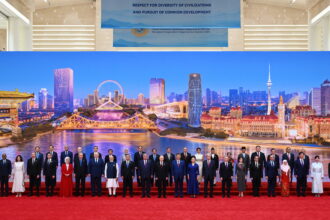G77 leaders have convened in Havana, Cuba, this week, for the Group’s Summit on Current Development Challenges: The summit aimed to address pressing global issues. and reaffirm commitment G77 Principals.
Leaders lamented the recent natural disasters in Libya and Morocco, highlighting the need for collective action to tackle current challenges like geopolitical tensions, and climate change.
The impact of these challenges on developing countries, has underscored the need for economic and political cooperation.
Leaders say science, technology, and innovation are key to sustainable development, acknowledging their potential to accelerate progress towards the Sustainable Development Goals (SDGs).
They stressed the need for a comprehensive financial reform advocating for greater representation of developing countries in global decision-making bodies.
Meanwhile, the leaders condemned coercive economic measures and technological monopolies that stop developing nations from doing just that. They’ve called for equitable environments for scientific and technological advancement.
Acknowledging the halfway mark of the 2030 Agenda for Sustainable Development, the leaders recognized the importance of science, technology, and innovation in achieving the SDGs and addressing global challenges, including climate change and healthcare.
The leaders underscored the vital role of open and equitable scientific collaboration, and research and development in achieving sustainable development. They emphasized the necessity of investment in science, technology, and innovation, particularly to confront emerging challenges and improve international trade capacities
What is the G77?
The Group of 77 (G77) is a coalition of developing countries at the United Nations (UN). It was established on June 15, 1964, by 77 developing countries, and its membership has since expanded to 134 countries as of my last knowledge update in September 2021.
The primary objectives of the G77 are to promote economic and technical cooperation among its member countries and to enhance their negotiating capacity on various international issues, particularly those related to economic development and the global economy.
The G77 aims to address the concerns and interests of developing countries on a wide range of issues, including trade, finance, technology transfer, and sustainable development.
While the G77 operates primarily within the framework of the United Nations, it also interacts with other international organizations and institutions to advocate for the interests of its member countries and work towards a more equitable global order.












